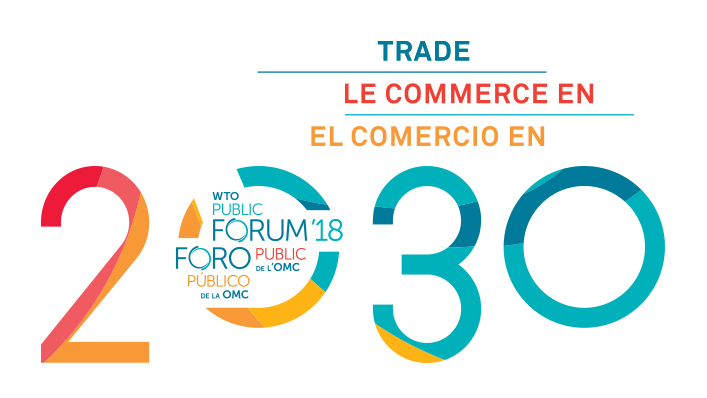How e-commerce will drive inclusivity and become a profitable reality for SMEs and MSMEs by 2030
3 Oct 2018 02:00h
Event report
The four panellists focused on the opportunities as well as challenges brought about by e-commerce for micro, small and medium sized enterprises (MSMEs), and set out to explore ‘digital de-colonisation for social benefit and successful global cross-border trade’.
Mr Andrew Ure (Head of Trade and Economic Affairs, Google Asia-Pacific) focused on the digital innovations that drive MSMEs, and argued that it is now easier to reach global markets. He mentioned that various digital innovations allow for easily available current market information, making it easier for MSMEs to find and integrate this information into their supply chains. Increases in computational power, combined with the low costs of cloud computing, further support these businesses. Platforms are crucial to reach customers around the world, and there is a symbiotic relationship between these platforms and MSMEs.
Ms Rupa Ganguli (Founder & CEO, inclusivetrade.com) pointed out that MSMEs often lack the resources necessary to access global markets, in particular the right information, routes of access, and tools that are tailored to their size and specific needs. She emphasised that collaboration is key. For instance, working through one platform can save MSMEs important resources, while increasing trust of global customers. In principle, digital tools allow for shops to stay open 24/7, and reach customers worldwide. However, many barriers for MSMEs still exist, such as a lack of customised banking solutions. Many regulations and tools for business are still geared towards big business, especially when access to global markets is concerned. There is also a prevailing assumption that businesses grow locally and only go global after they have reached a certain size. However, this is no longer true and new solutions for MSMEs are needed.
Mr Jake Colvin (Executive Director, NFTC’s Global Innovation Forum) pointed out that there is a fundamental change taking place with regard to who benefits from global trade. MSMEs have started to benefit, and make important contributions by creating jobs locally through doing business globally. They increasingly use Internet-enabled technologies to run their businesses efficiently. Colvin highlighted the importance of connecting globally minded entrepreneurs with policymakers. Some key questions were: How do governments get to hear about this new perspective that emerges from MSMEs empowered by digital tools? How can they support MSMEs by fostering the right policy landscape?
Ms Kimberley Botwright (Community Lead, Trade and Investment, World Economic Forum) began by pointing out that the future of trade lies in e-commerce. However, trading costs for small businesses that wish to become global players are still substantial. She highlighted five key pillars to enable e-commerce: logistics, payment, digital customs, regulatory coherence, and e-transaction rules. She also emphasised the need for increased collaboration in regulatory landscapes, technical assistance, and public-private partnerships. Botwright identified these as systemic problems, and noted the importance of scaling up support for MSMEs, in order to achieve systemic effects. One way of doing this is by learning from how other systemic challenges have been tackled.
The moderator, Ms Lucy Hockings (host and presenter, BBC), highlighted that collaboration and connectivity stand out as key elements in creating better solutions for MSMEs and within this context, the panellists pointed to further challenges and solutions. Rupa mentioned that MSMEs need to be able to sell single products, rather than being forced to wholesale on global markets, and that digital solutions play a key role in this. Colvin emphasised how platforms can be used to create visibility and trust in MSMEs. Botwright pointed out that one of the challenges is understanding various problems faced by MSMEs when the issue is sometimes so complex that entrepreneurs have been prevented from exploring global markets in the first place. Ure mentioned challenges in affordability, and Rupa highlighted additional costs related to unconnected banking solutions, and inappropriate regulatory frameworks.
Questions from participants also pointed to issues of regulatory coherence. Challenges regarding a demand for free data flows in the context of developing countries who are just emerging in e-commerce were also highlighted. One commentator suggested to look at cases in which existing solutions for physical issues related to trade can also be applied to digital space.
Related event

